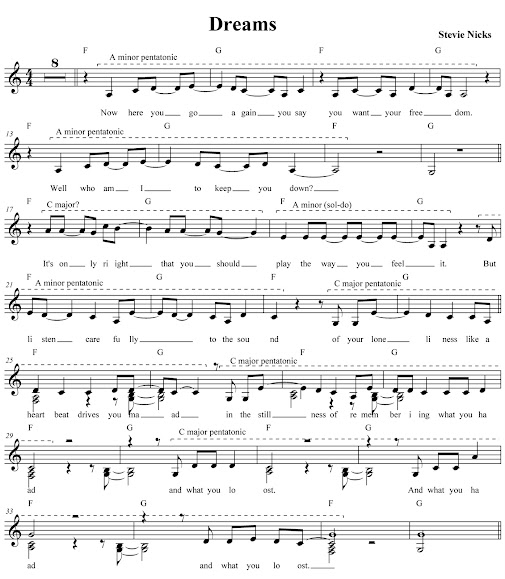This morning I realized something. Something I should have realized by now. It's not news that "Sweet Home Alabama" and "Werewolves Of London" are very similar, at least in terms of chord progression/harmonic rhythm and tempo (most of the former and all of the latter are, for the most part, D followed by C followed by G, over and over). I mean even Kid Rock knows that. And I've used "Sweet Home Alabama" as an example of "be careful of what the chords LOOK like, never forget what they SOUND like," especially when combined with the vocal melody: the song is in D, the chords being I, flat VII, IV. And the signature guitar lick--the one that comes right after the title is sung during the chorus--is D all the way.
I'm not going to bother making diagrams. If you're inclined to check this blog out then perhaps you're the type of person that will check this for yourself. But in both cases what I think of as "key" is determined not by the chord progression so much as the vocal line tying things together.
NOW. What REALLY blew my mind is that the guitar solo in "Sweet Home Alabama" is clearly based around G! The chord progression stays the same, but the guitar solo is totally "G-centric." Mostly a sort of bluesy major-pentatonic sound.
So does this ruin my theory? Not really. I still maintain that most of the tune is firmly in a modified D major (not comfortable calling it "the key of D mixolydian"--that's not how I interpret this music--it is NOT modal, it is INFLECTED). However, it does make me think differently about both songs. Rather than getting stuck on the "chord progression," it may be more useful to think of these progressions as loops--a series of chords over which any number of melodies/lines/riffs can be overlaid, thus changing the identity of the loop. "Werewolves Of London" ends up sounding like G major, while "Sweet Home Alabama" sounds like either D or G depending on the section.
This is much like "Dreams" by Fleetwood Mac--the two chord progression is more like a simple vamp that Stevie Nicks sings over the top of. At times you hear A minor, other times you hear C major.
Oh. And that profoundly stupid Kid Rock song is in G. Again, because of the vocal melody. He does drive a really sweet boat in the video, I gotta say. And there are girls and stuff.
An interesting side note: Mick Fleetwood and John McVie, the namesakes of Fleetwood Mac, play on "Werewolves Of London."

